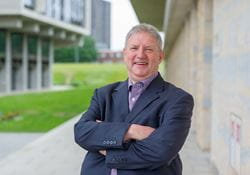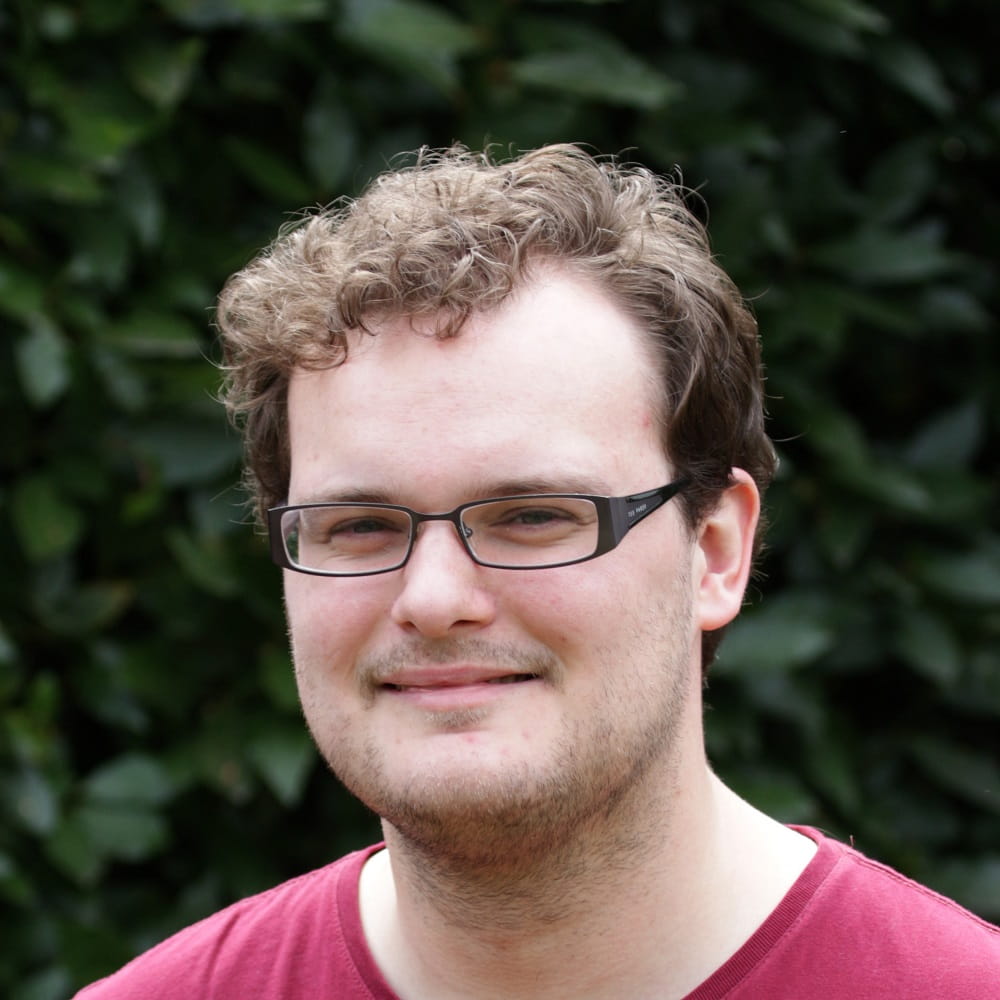Essex Sociology Research Newsletter Winter 2023

Our research students
Salih Kinsun
 Salih has published a Turkish language book with co-author Abdulbaki Kinsun - The 'Can't Hold On' of Global Capitalism: Precarity (2023)
Salih has published a Turkish language book with co-author Abdulbaki Kinsun - The 'Can't Hold On' of Global Capitalism: Precarity (2023)
The book explores the concept of precarity within the context of global capitalism, tracing its historical roots from the Middle Ages to the present. The book emphasises the individual's pivotal role in societal transformations and examines how precarious conditions have evolved over time, particularly with advancements in communication and technological advancements. The study focuses on the individual's experience of precarity, encompassing not only insecure labour but also the impact on personal space and private life. It argues that precarity results in an unstable and risk-laden existence, pushing individuals toward a state of classlessness and detachment. The text concludes by framing precarity as a societal state devoid of positive elements, leaving individuals anxious and uncertain about the future, and highlights the power dynamics that perpetuate this precarious condition within contemporary capitalism.
In September Salih presented his work at the BSA Work, Employment and Society conference 2023, the paper was titled ‘Working from Home: The Flexible Sovereignty’.
The paper explores the challenges of remote working for journalists in the UK and the problems that come with using the home as a workplace. Especially with the COVID-19 pandemic and the developments and changes experienced afterwards, the method of working from home was dictated to employees, who became dependent on their homes at the end of this process. The situation of being dependent on the home has brought new debates in the field of social science. These debates include mental health problems, the balance between work and life, privacy and precarity.
Based on these debates, this discussion gathered data from 25 local journalists in the UK working from home, using in-depth interview techniques. The findings confirm that local journalists are not adapted to work from home and face many challenges. For example, journalists feel particularly lonely when home turns into a workplace, lack resistance and cooperation, suffer from stress, anxiety disorders and burnout syndrome, and are precarious due to the extra cost of bills and personal expenses. This study has been supported by studies in sociology and media and communication research and concluded that journalists working from home face the problems partly mentioned above. To sum up, it has been observed that journalists working from home are marginalised workers, and even their homes, where they feel most secure, have become precarious workplaces.
Sanjaya Aryal
 Sanjaya has published an open access article from his PhD research in Gender Issues. He argues that individual capabilities and destination contexts overrule the skilled migration decision-making processes than gender and power relations in the family.
Sanjaya has published an open access article from his PhD research in Gender Issues. He argues that individual capabilities and destination contexts overrule the skilled migration decision-making processes than gender and power relations in the family.
Grace Tang
 In November, Grace was awarded the Fuller Postgraduate Research Prize 2023 for her first journal article from her PhD project. The article, ‘From "take-ism" to pursuit of newness and originality: design professionals and models of creativity in contemporary China,’ is accessible through open access in the Journal of Cultural Economy. Appreciative of the support and recognition, Grace looks forward to advancing her research in the field of sociology.
In November, Grace was awarded the Fuller Postgraduate Research Prize 2023 for her first journal article from her PhD project. The article, ‘From "take-ism" to pursuit of newness and originality: design professionals and models of creativity in contemporary China,’ is accessible through open access in the Journal of Cultural Economy. Appreciative of the support and recognition, Grace looks forward to advancing her research in the field of sociology.
Our academic staff
Dr Anna Di Ronco
Anna was elected at-large Board member of the European Society of Criminology (ESC) Executive Board in September 2023. In October, she visited Bucharest, Romania, for her first ESC Board meeting where the Board visited the University premises which will host the next ESC conference in September 2024 (in the Faculty of Law).
Anna was also recently selected as Associate Editor for the European Journal of Criminology, a major journal in the field.
One of her papers (co-authored with R. Selmini, University of Bologna) was recently published in the prestigious American journal Crime and Justice. The article is titled ‘The criminalization of dissent and protest’.
Professor Sean Nixon
New article in The British Journal for the History of Science, ‘Watching birds: observation, photography and the “ethological eye”’.
The article reflects upon the observational practices and methods developed by the early exponents of ethology committed to naturalistic field study and explores how their approaches and techniques influenced a wider field of popular natural-history filmmaking and photography.
In doing so, his focus is upon three aspects of ethological field studies: the socio-technical devices used by ethologists to bring birds closer to them, the distinctive observational and representational practices which they forged and the analogies they used to codify behaviour.
This assemblage of elements included hides or screens from which to watch wild birds without disturbing them, optics to extend human vision, pens and paper to sketch and fix patterns of behaviour, watches to record timings, photography to capture action and freeze movement, and illustration and photographs to visualize behaviour. Carried through natural-history networks, the practices, methods and theories of ethologists like Huxley and Tinbergen influenced popular natural-history filmmaking and photography more broadly from the 1940s, driving a behavioural turn in these cultural practices. This popularization of the ‘ethological eye’ was further facilitated by the convergence of socio-technical devices, forms of observation and dramatization in the work of the early exponents of naturalistic field studies of birds and the popular filmmakers.
Professor Andrew Canessa
New article in Culture, Agriculture, Food and Environment ‘Ethnic elder poverty: Miao household livelihoods and elderly self-sufficiency practices in Midwest China’ with Shuangyan Guo.
Within the existing literature on livelihoods, there is a paucity of research examining the livelihood of the elderly from ethnic communities, and of the few studies on elderly livelihoods, scholars tend to focus on their agricultural labor engagement and ignore other forms of activity. In this study, they investigate the elderly livelihood choices and the multiple survival practices in a Miao town in China's Midwest, which was chosen as the first case for the Targeted Poverty Alleviation (TPA) program. Using the dual lenses of age and ethnicity, they describe the history of household livelihoods in the region, and how agricultural participation, the production of ethnic artisan goods and ritual practices are uniquely employed by Miao elders (compared to their Han peers) to achieve self-sufficiency. They consider how being Miao has certain advantages in tackling elder poverty. Alongside agricultural labor, Miao elders can engage in recognized handicrafts for sale; they can also engage in customary ritual practices as a recognized ethnic minority which would otherwise be prohibited and contribute to social cohesion. This is the first anthropological study conducted in Midwest China that centers on the livelihood and practices of age-advanced group with an ethnic identity in a globally aging context.
Guo, Shuangyan and Canessa, Andrew. 2023. ‘Ethnic Elder Poverty: Miao Household Livelihoods and Elderly Self-sufficiency Practices in Midwest China’ Culture, Agriculture, Food and Environment 45 (2): 55–68.
New book with Drana Brablec, Urban Indigeneities: Being Indigenous in the Twenty-First Century.
Today a majority of Indigenous peoples live in urban areas: they are builders and cleaners, teachers and lawyers, market women and masons, living in towns and cities surrounded by the people and pollution that characterize life for most individuals in the twenty-first Century. Despite this basic fact, the vast majority of studies on Indigenous peoples concentrate solely on rural Indigenous populations.
Aiming to highlight these often-overlooked communities, this is the first book to look at urban Indigenous peoples globally and present the urban Indigenous experience - not as the exception but as the norm.
Professor Anna Sergi
 In September 2023 she was awarded the European Society of Criminology, Early Career Award, during the opening ceremony in Florence.
In September 2023 she was awarded the European Society of Criminology, Early Career Award, during the opening ceremony in Florence.
Also in September, she was selected for a BA/Leverhulme Trust Small Grant for her upcoming research "HOnour DynaSTies (HO.ST.): intergenerational changes, recognition, and reputation in cross-border organised crime families”. Thanks to this grant she will spend part of her research leave in Australia in early 2024 (January/February).
The remaining part of her upcoming research leave will be spent at the University of Bologna, in Italy, where she was awarded a very competitive paid fellowship at the Institute of Advanced Studies. She will spend March 2024 in Bologna and she will give seminars to the PhD courses and have an ISA lecture open to all at the University.
In the past few months, she has been busy working on a paper submission, now under review, and a submission of on a short book titled La Santa which will be published in Italian and sold in newsagents' with the Gazzetta dello Sport and Corriere della Sera, two major Italian newspapers. The book will come out on 2 February.
Another crucial part of the past few months has been her travels to Dusseldorf, Germany, to be expert witness in a criminal case against Italian-German individuals accused of being involved in drug trafficking as part of the Calabrian mafia, the ’Ndrangheta.
She was interviewed for an episode of The Bunker on mafias and Gen Z, for London Stories (in Italian) about Italians in London, for the Law Report (ABC). She was also interviewed for several news commentaries, including news about a Milan-based Supermafia (not!) the maxi-trial Rinascita-Scott against some ’Ndrangheta members in Calabria here on BBC among others, and also about mafia groups in NYC, on BBC as well. A very interesting long read by the BBC on mafia and children also cited her research.
In the summer she was an expert in a three-part historical documentary on The Black Hand aired for ABC, with actor Anthony LaPaglia leading. This also inspired a panel in the ASMI Conference on Italian Mafias 1990s-2020s in London in early December.
Professor Colin Samson
 Colin Samson has co-authored a paper with our very own PGR graduate Tatiana Sanchez Parra for Third Text on art and human rights in Bogota. Pictured is Colin with Tatiana in Bogota last year.
Colin Samson has co-authored a paper with our very own PGR graduate Tatiana Sanchez Parra for Third Text on art and human rights in Bogota. Pictured is Colin with Tatiana in Bogota last year.
Professor Nigel South
 Meropi Tzanetakis (former Visiting Fellow in the Department) and Nigel edited ‘Digital transformations of illicit drugs markets: disruptions and continuities’ which, thanks to the Austrian Science Council, is now available Open Access. He also met the UNODC Technical Working Group on ‘Crimes that Affect the Environment’ in Vienna.
Meropi Tzanetakis (former Visiting Fellow in the Department) and Nigel edited ‘Digital transformations of illicit drugs markets: disruptions and continuities’ which, thanks to the Austrian Science Council, is now available Open Access. He also met the UNODC Technical Working Group on ‘Crimes that Affect the Environment’ in Vienna.
Dr Tara Mahfoud
 In October, she submitted my book manuscript, A Brain for Europe: Experiments in Integration for peer review, under contract with MIT Press.
In October, she submitted my book manuscript, A Brain for Europe: Experiments in Integration for peer review, under contract with MIT Press.
In November, she submitted an article titled ‘Experiments in Anticipation: Learning from Responsible Research and Innovation in the Human Brain Project’ to the journal Futures which was co-written with Christine Aicardi (King’s College London) and Nikolas Rose (University College London).
In Hawaii she presented a paper she’s been developing titled ‘Laboratories of Friendship: On Critical Friendship and Responsible Research and Innovation’ as part of a panel she co-organised with Koichi Mikami (Keio University); Jane Calvert, Robert Smith (University of Edinburgh), Emma Frow (Arizona State University) and Erika Szymanski (Colorado State University), titled “Studying with: building infrastructures for collaborative work”. She will be attending a follow-up workshop at the University of Edinburgh in January in order to develop the papers for a special issue.
She has also been co-organising a seminar series as part of the British Sociological Association’s Science and Technology Studies group. You can subscribe to the mailing list to stay updated on our upcoming events.
Professor Pete Fussey
 Pete has been on Impact Leave for the Autumn term and has used the time to develop an impact case study on human rights standards around law enforcement uses of AI and other emerging technologies. At an international level Pete has been working with the UN Office of the High Commissioner for Human Rights (and UN Office for Drugs and Crime) on developing an international framework for police uses of technology during protests.
Pete has been on Impact Leave for the Autumn term and has used the time to develop an impact case study on human rights standards around law enforcement uses of AI and other emerging technologies. At an international level Pete has been working with the UN Office of the High Commissioner for Human Rights (and UN Office for Drugs and Crime) on developing an international framework for police uses of technology during protests.
The work is focused on delivering UN Human Rights Council Resolution A/HRC/Res/50/21 requiring protocols and guidance on the policing of assemblies. Developing the framework has involved consultations through October with human rights groups in Tanzania and Lebanon, and Pete co-led a two tech-focused workshops in Geneva (pictured) with the UN Special Rapporteur for Freedom of Assembly and Association, convening law enforcement and civil society organisations from across the world including the ACLU, Amnesty Tech and CIPESA Africa. The framework is due to be delivered at the UN Human Rights Council in spring 2024.
At a national level, Pete has been working with the Equality and Human Rights Commission on human rights standards and regulation for AI-driven technology in policing. In November he co-convened and led a day-long workshop with EHRC, regulators and law enforcement on developing policy in this space, with the work set to develop in the new year. Pete has also produced an analysis critiquing the Data Protection and Digital Information Bill currently in Parliament. The report has been published on the gov.uk website, was covered by Wired and others, and used as a basis to table amendments to the Commons. Pete is also meeting with members of the House of Lords ahead of the Bill’s second reading in the second chamber.
In other impact activities, Pete been building collaborations with a range of human rights groups including the ACLU, Liberty and Amnesty with regard to leveraging academic research on surveillance chilling effects for civil society advocacy.
During Autumn, Pete submitted applications for collaborative grants to the US National Science Foundation and, separately, with Essex Professors Gilbert and McDonald-Maier to UKRI for a collaboration with UNHCR.
Dr Isabel Crowhurst
 Before the autumn term started, she was in Zagreb for the European Sociological Association (ESA) Sexuality Network mid-term conference 'Making a Difference: the Hope and Promise of Sexuality Studies'. It was a very successful event with over 100 participants. She co-organised it in her role as Chair of the Research Network with the conference host, Tanja Vuckovic Juros from the University of Zagreb. Here is a photo taken at the end of the last plenary session.
Before the autumn term started, she was in Zagreb for the European Sociological Association (ESA) Sexuality Network mid-term conference 'Making a Difference: the Hope and Promise of Sexuality Studies'. It was a very successful event with over 100 participants. She co-organised it in her role as Chair of the Research Network with the conference host, Tanja Vuckovic Juros from the University of Zagreb. Here is a photo taken at the end of the last plenary session.
The forthcoming ESA conference in Porto at the end of August 2024, the call for papers is out (deadline mid-January 2024).
Other news
Senior Communications Officer Vicky Passingham has taken over from Nelleke Van Helfteren as communications lead for the Faculty of Social Sciences. Vicky would really like to hear about any newsworthy research papers coming out or if you would like to discuss possible media opportunities in relation to your expertise.
